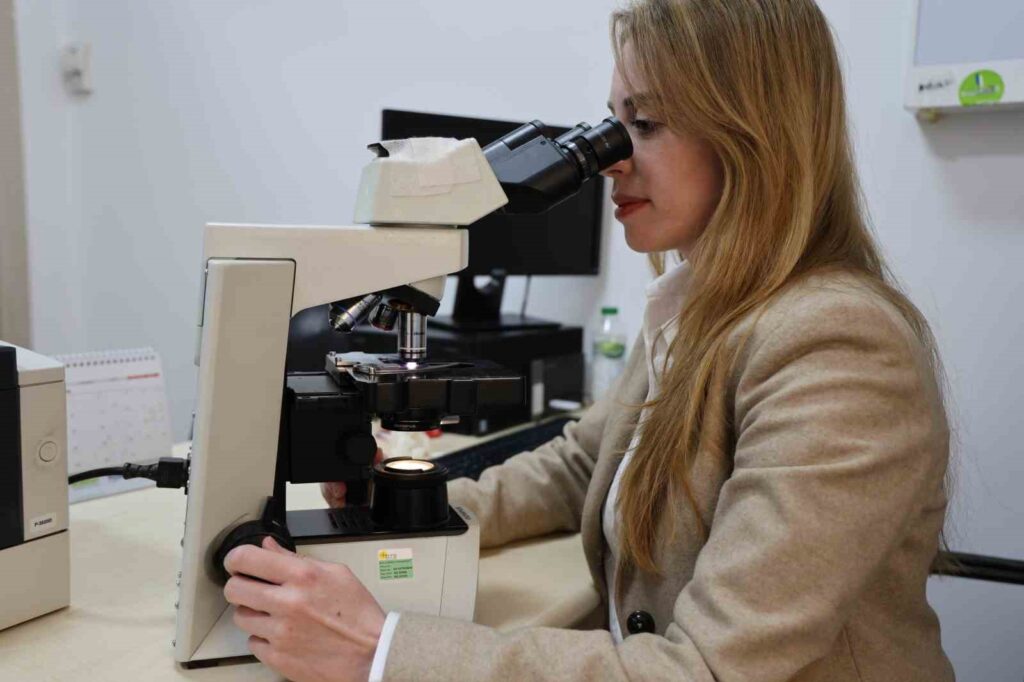Tips from a dietitian to increase breast milk supply.
Dietitian Gizem Aydın Amil stated that breast milk not only provides the nutrients that babies need but also strengthens their immunity. She offered various suggestions to increase breast milk production. “Breast milk not only …

Dietitian Gizem Aydın Amil stated that breast milk not only provides the nutritional substances needed by infants but also strengthens their immunity, and offered various recommendations to increase breast milk production.
“Breast milk not only provides the nutritional substances that infants need but also strengthens their immune system, supports their long-term health, and strengthens psychological bonds. Therefore, there are some key elements that mothers should pay attention to in order to increase milk production,” said Gizem Aydın Amil, a Nutrition and Diet expert at Çakmak Erdem Hospital, who shared important information to help mothers increase the breast milk, the most important food source for their babies’ healthy growth.
“The antibodies in it help protect babies from infections.”
Breast milk is the most ideal food source for infant nutrition from birth. The World Health Organization (WHO) recommends that infants be exclusively breastfed for the first six months. Breast milk contains the protein, fat, vitamins, minerals, and antibodies necessary for the growth and development of infants. Dietitian Gizem Aydın Amil stated, “Breast milk is the first vaccine for babies. The antibodies in it help protect babies from infections. Babies who are breastfed have a lower risk of developing type 1 diabetes, asthma, obesity, and sudden infant death syndrome. Additionally, the nutrients provided by breast milk support the mental and physical development of infants.”
Ways to Increase Milk Production
Dietitian Gizem Aydın Amil listed some simple but effective methods to increase breast milk:
Regular breastfeeding: “The more often you breastfeed your baby, the more your milk production will increase. The frequency of breastfeeding directly affects the mother’s milk production. The baby’s suckling reflex is a natural mechanism that increases milk production. Breastfeeding your baby whenever they demand it increases both the quantity and quality of milk. Every moment your baby wants to suckle encourages milk production.”
Fluid intake: “Water makes up 87% of breast milk. Drinking enough water supports breast milk production. Drinking at least 2-3 liters of water daily increases the quality and quantity of breast milk. In addition, milk-based drinks, plain mineral water, unsweetened fruit compote, fresh fruit juices, and herbal teas also contribute to fluid intake. Moreover, hot herbal teas (especially fennel, anise, chamomile, linden) may have a milk-increasing effect for some mothers.”
A balanced and nutritious diet: “Nutrition habits should be taken into account to increase the quality of breast milk. A rich diet increases milk production. Including the following foods in your diet can be particularly beneficial:
Leafy Green Vegetables: Vegetables such as spinach, purslane, parsley, arugula, and chard are rich in calcium, iron, and folate. These foods, which are phytoestrogens, contribute to the increase of hormones that stimulate milk production.
Whole Grains: Whole grains such as oats and brown rice provide energy and support milk production.
Quality Protein Sources: Red meat, chicken, fish, eggs, legumes, and dairy products are protein sources that increase milk production and the quality of breast milk.
Nuts and Seeds: Foods such as almonds, walnuts, hazelnuts, chia seeds, and sesame are also rich in calcium and omega-3.
Fruits: Especially dried fruits, fruits such as avocados, bananas, kiwis, and strawberries are rich in fiber, vitamins, and minerals and provide energy.”
Rest and Stress Management
Stress can negatively affect milk production. It is very important for new mothers to rest sufficiently and take time for themselves. Dietitian Amil stated, “Breathing exercises, meditation, and light walks can be helpful for coping with stress. Additionally, paying attention to sleep patterns also supports milk production. I remind mothers to take time to rest and take care of themselves.”
Foods that Increase Milk Production
“Some foods are known to have a milk-increasing effect. Adding these foods to your daily diet can be beneficial,” said Dietitian Amil, listing the foods as follows:
Fennel: “A natural herb that increases milk production. Drinking fennel tea or using it in meals can be effective.”
Brown rice, whole grain products, and oats: “These foods, rich in fiber and iron, regulate blood pressure and calm the mother, reducing potential stress. This, in turn, plays an effective role in increasing milk production by stimulating the release of oxytocin and prolactin hormones. Oats also help milk flow through the ducts. Oatmeal can be preferred in meals every day.”
Rosemary, Basil, and Garlic: “These contain a lot of vitamins C and K. They can increase milk production without changing the taste of the milk. They can be included in meals.”
Cumin: “Has a gas-relieving property and increases breast milk.”
Carrots and carrot juice: “Carrots, a phytoestrogen food, provide energy to the mother and increase milk quality due to their beta-carotene and vitamin A content.”
Mineral Water: “Completely natural mineral waters rich in minerals regulate blood pressure, maintain body balance, and contribute to increasing the mother’s milk production.”
Walnuts, Almonds, Hazelnuts, and Tahini: “Rich in omega-3 fatty acids and calcium, they provide energy to the mother. Especially using one tablespoon of tahini daily, mixed with molasses or added to salad, increases the mother’s milk production and quality.”
Fatty Fish: “Fatty fish such as salmon, sardines, mackerel, and anchovies are important protein sources rich in B-12 and omega-3. DHA, which is necessary for the development of the baby’s nervous system, is abundant in salmon. It is thought that these components, which not only increase breast milk but also help with postpartum depression.”
Dairy and Dairy Products: “Foods like milk and yogurt increase the quality and nutrition of the mother’s milk thanks to their calcium content.”
Dried Fruits: “Consumption of dried fruits such as apricots, figs, and dates can increase the prolactin hormone, which increases milk production in the body.”
Fresh White Grapes: “A strong antioxidant rich in vitamins B, C, E, calcium, phosphorus, and iron. It is known to reduce the stress of breastfeeding mothers, alleviate fatigue, and increase breast milk production.”
Legumes: “Dried legumes rich in iron increase both the quantity and quality of breast milk. However, they should be consumed with caution as they can sometimes cause gas problems. Those who do not experience gas problems can include dried legumes such as kidney beans, chickpeas, or white beans in lunch or dinner 3-4 times a week.”
Beetroot: “Can be consumed boiled or raw, beetroot has a blood-cleansing property. It increases the quality of breast milk.”
Extra Tips
Storing Milk: “You can safely store expressed milk at room temperature for 4 hours, in the refrigerator for 3-5 days, and in the freezer for up to 6 months. When storing breast milk, sterile glass or airtight, BPA-free plastic containers should be used. Additionally, it is useful to write the date and time on each container when storing milk.”
Defrosting Breast Milk: “You can defrost milk taken from the deep freezer in the refrigerator or under cold water. You should never defrost it in the microwave, as it may not heat the milk evenly and could reduce its nutritional value.”
Breastfeeding Positions: “Taking comfortable positions while breastfeeding makes the process easier and supports more effective milk flow. Feeling comfortable during breastfeeding reduces stress levels.”
Social Support: “Receiving support from family and friends can help mothers feel more secure. Positive behaviors from family and friends reduce the mother’s stress. These behaviors increase the mother’s milk production. Sharing experiences among mothers can also be psychologically beneficial.”
Frequent Weight Control: “While weight loss during breastfeeding is natural, it is important to avoid excessive weight loss. Maintaining a balanced diet and adequate calorie intake is critical for milk production. During this period, low-calorie crash diets should absolutely be avoided. However, it is also recommended to avoid excessive consumption of all foods known to increase breast milk.”
Finally, breast milk is a vital food source for infants, and mothers must pay attention to their dietary habits to support this process. Dietitian Gizem Aydın Amil concluded, “In addition to these recommendations for increasing breast milk, it is also very important for mothers to feel good. They should not hesitate to seek help when needed.”







